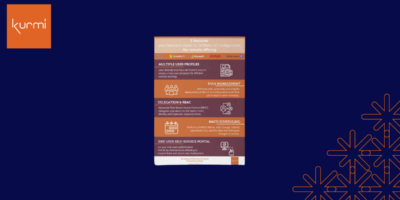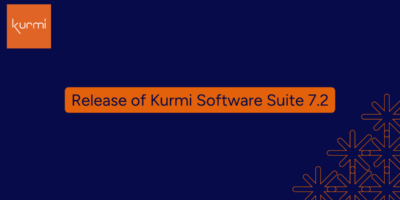The overriding and long-term trend for organizations is increased complexity in their Unified Communications and Contact Center telecoms systems. They require a growing number of collaboration applications, often from multiple vendors, deployed across hybrid cloud and on-premises environments. They are also faced with the challenge of managing remote and hybrid workforces.
To discuss these issues and more, Micah Singer, CEO of Kurmi Software, sat down to talk with Irwin Lazar, President and Principal Analyst at Metrigy.
“Hybrid” in all its guises
Today “hybrid” means several things. It is used to denote the home vs. office working patterns and cloud vs. on-premises storage and computing solutions. But, for Micah Singer, “hybrid” means taking an overall approach to the uniqueness of workers, from the top to the bottom of the organization, that ensures they can reliably use the technologies and applications that allow them to best perform their roles. Micah compared this approach to mixing and matching DNA to get the best solutions available, unique for each worker. There are an increasingly larger number of tools that workers use, and Kurmi allows organizations to provision and manage access to these tools more easily.
The challenges of multi-vendor ecosystems
The efficient use of time is one of the biggest challenges that drives people toward a Kurmi solution. IT teams have many processes to manage and oversee, each of which likely includes several different systems. Micah highlighted that as they grow in number, the amount of time and resources IT departments spend on provisioning these systems increases.
Kurmi allows organizations to simplify and automate the provisioning process across all of their systems. This allows IT teams to get work done quicker and focus their time on other business-critical tasks. According to Micah, on average Kurmi can help teams save between 50-80% of their time provisioning, which for organizations of thousands of people adds up to a lot of time and skilled resources that can be reallocated.
Irwin noted similar results from Metrigy’s recent research, showing that organizations who outsource UCaaS and CCaaS provisioning to third-party providers like Kurmi can save 1 hour for initial provisioning and 37 minutes for moves, adds, changes, and deletes (MACD).
Micah also highlighted the challenge of knowledge silos as a primary reason people turn to Kurmi. If you don’t have a system that simplifies, then you require highly skilled workers. But, as organizations grow and systems multiply, this leads to silos of knowledge. Certain people can use certain systems, and others can’t. This is problematic when employees leave or are away and leads to significant operational costs.
Kurmi over the next 12 months
Strengthening its ability to help organizations convert data into action is one of Kurmi’s focuses over the next 12 months, particularly through use of AI. By looking at vast amounts of data, AI’s strength is in helping us make better decisions. Once companies have that information, that’s where IT teams can use Kurmi to implement the insights provided by AI.
Another focus for Kurmi will be on developing more integrations with subsystems through improvements to its APIs and software development kits (SDKs). This will allow larger organizations to adjust Kurmi’s solution to their operations and workflows for greater customizability.
To hear about these issues in more detail, listen to Micah and Irwin in “MetriSight Ep.38 – A conversation with Micah Singer.”



